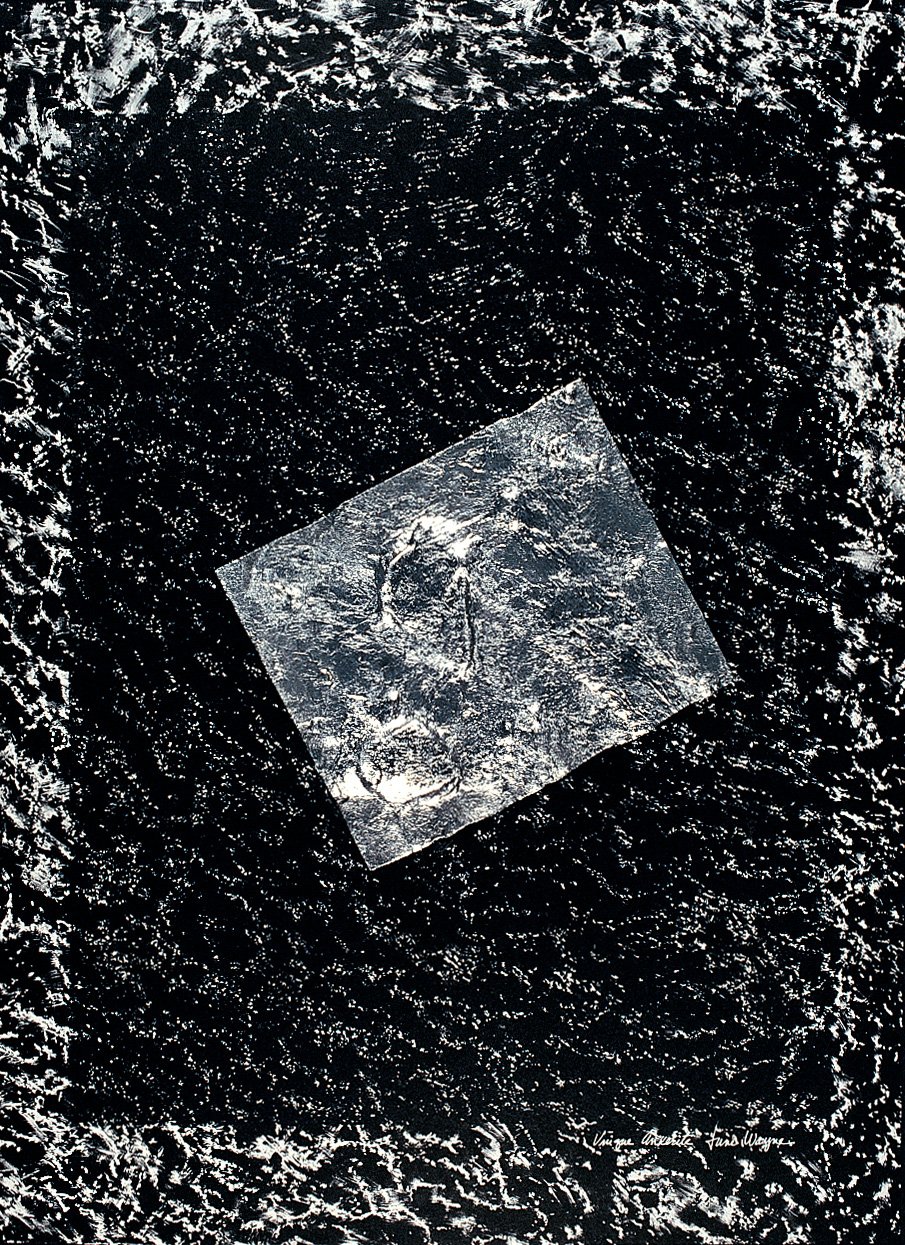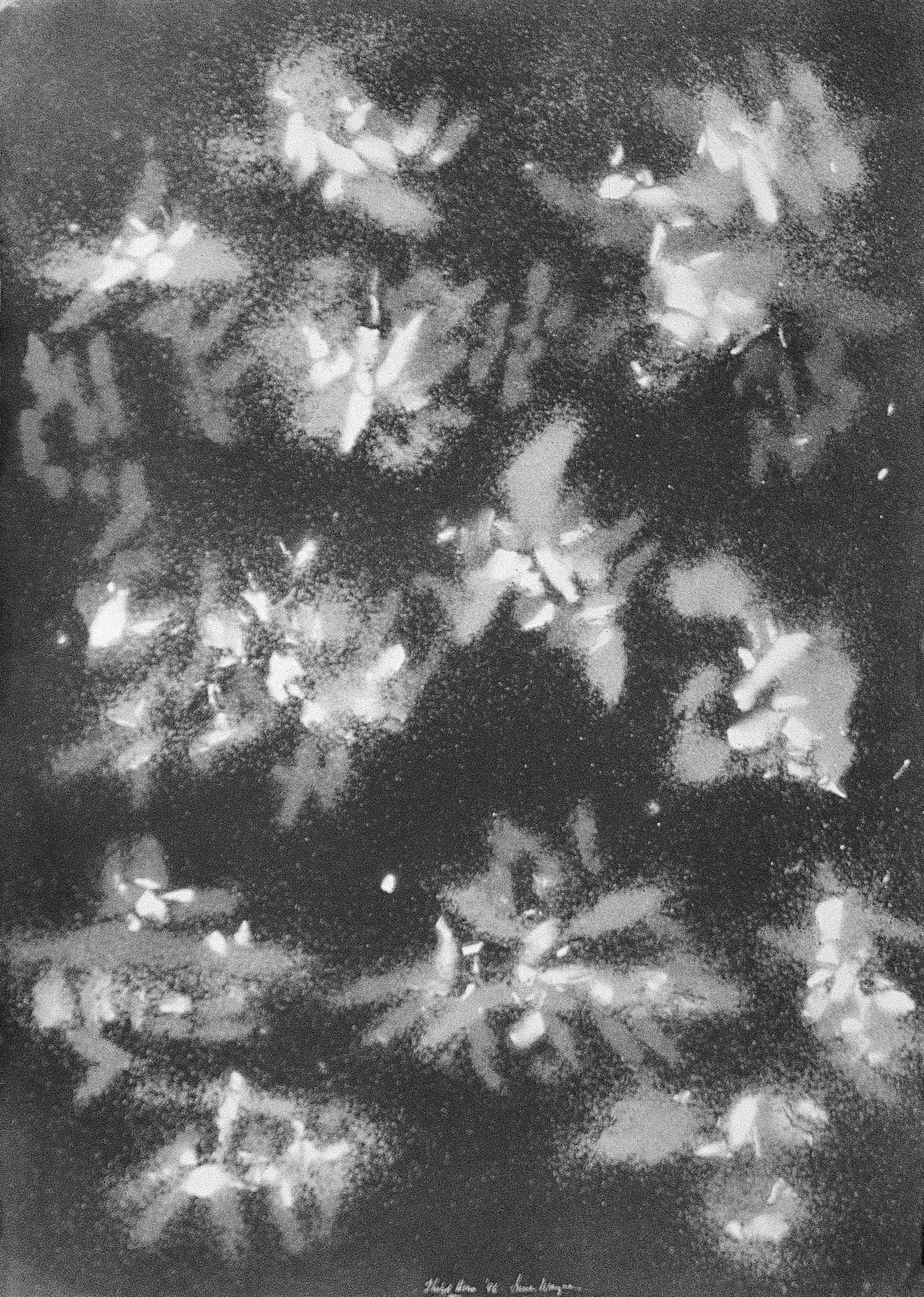JUNE WAYNE・Art & Science
The Celestial Works
Astrophysics
“To contemplate outer space is to explore an unearthly realm, most of which is-and will remain-far beyond the reach of immediate experience. It is a world ranging from thermonuclear heat to absolute zero where unimaginable distances, whether minute or immense, are measured in units from angstroms to parsecs. ”
“Having probed the limits of natural terrestrial atmospheric phenomena as resource of her art, Wayne extended her investigation into the ultimate wilderness of astrophysical space. Seeking all relevant sources of observation and fact, she has studied scientific literature and information, she has initiated dialogue with physicists, and has personally inspected the galaxy through the most powerful telescope in the West in order to examine her subject in an intellectual and formal sense, free of associations that derive from age-old romantic, religious, or mythological beliefs.”
“A stream of stars scattered across 15 degrees of sky was once part of a globular cluster torn apart by our galaxy’s gravity. The stars represent some of the oldest in the Milky Way. This stellar stream orbits the Milky Way on a relatively close polar orbit that takes it in and out of the galactic plane in less than half a billion years.”















